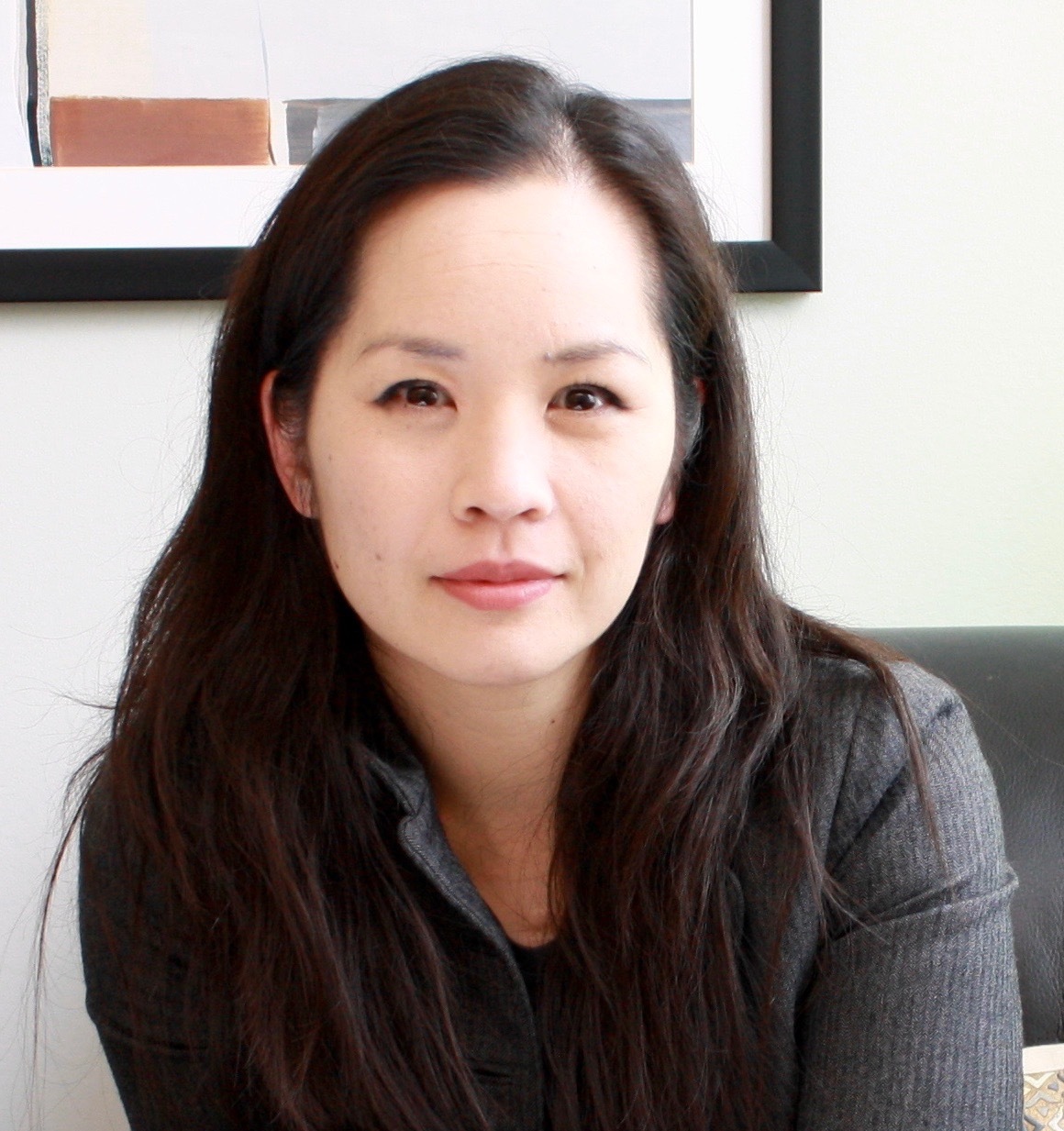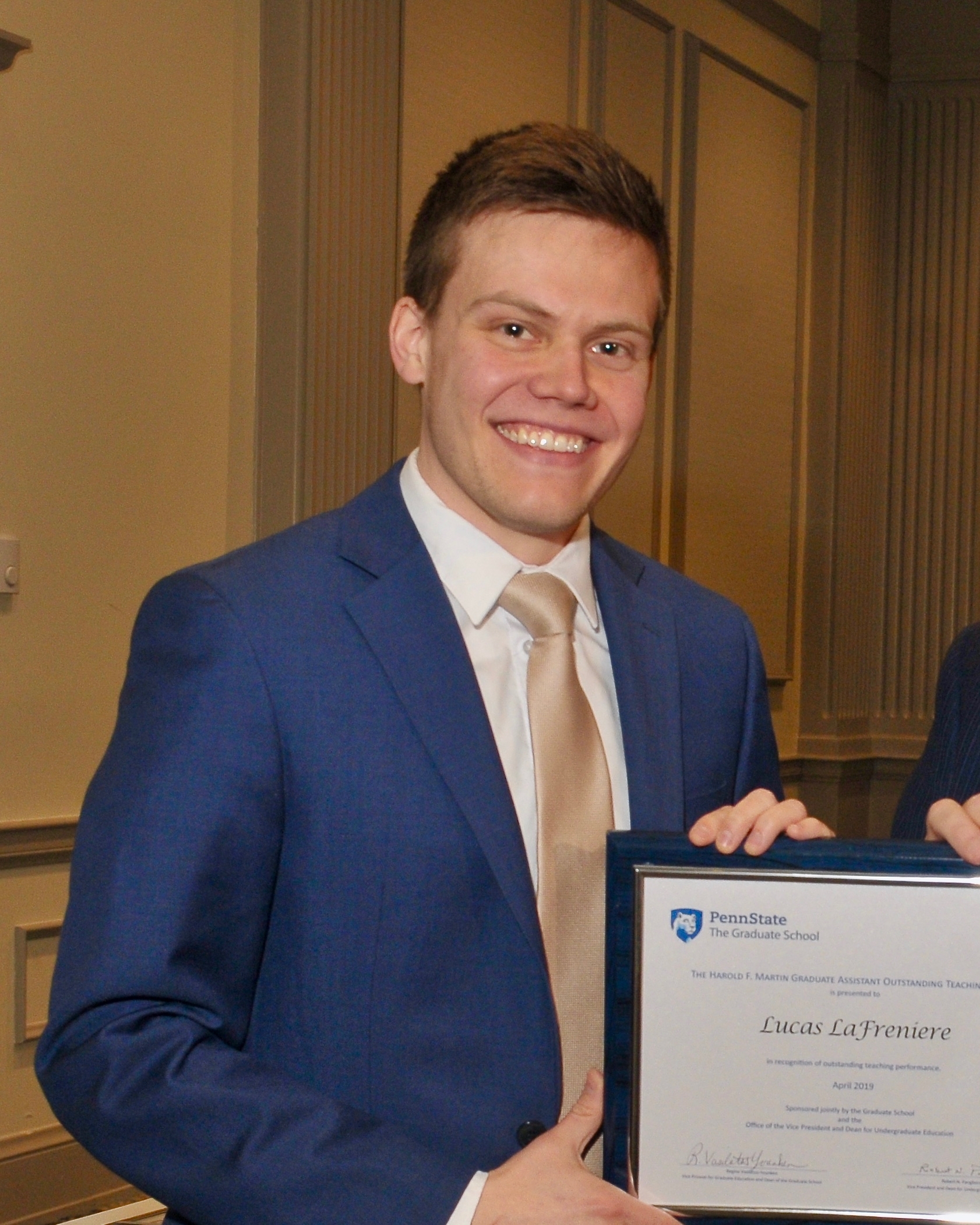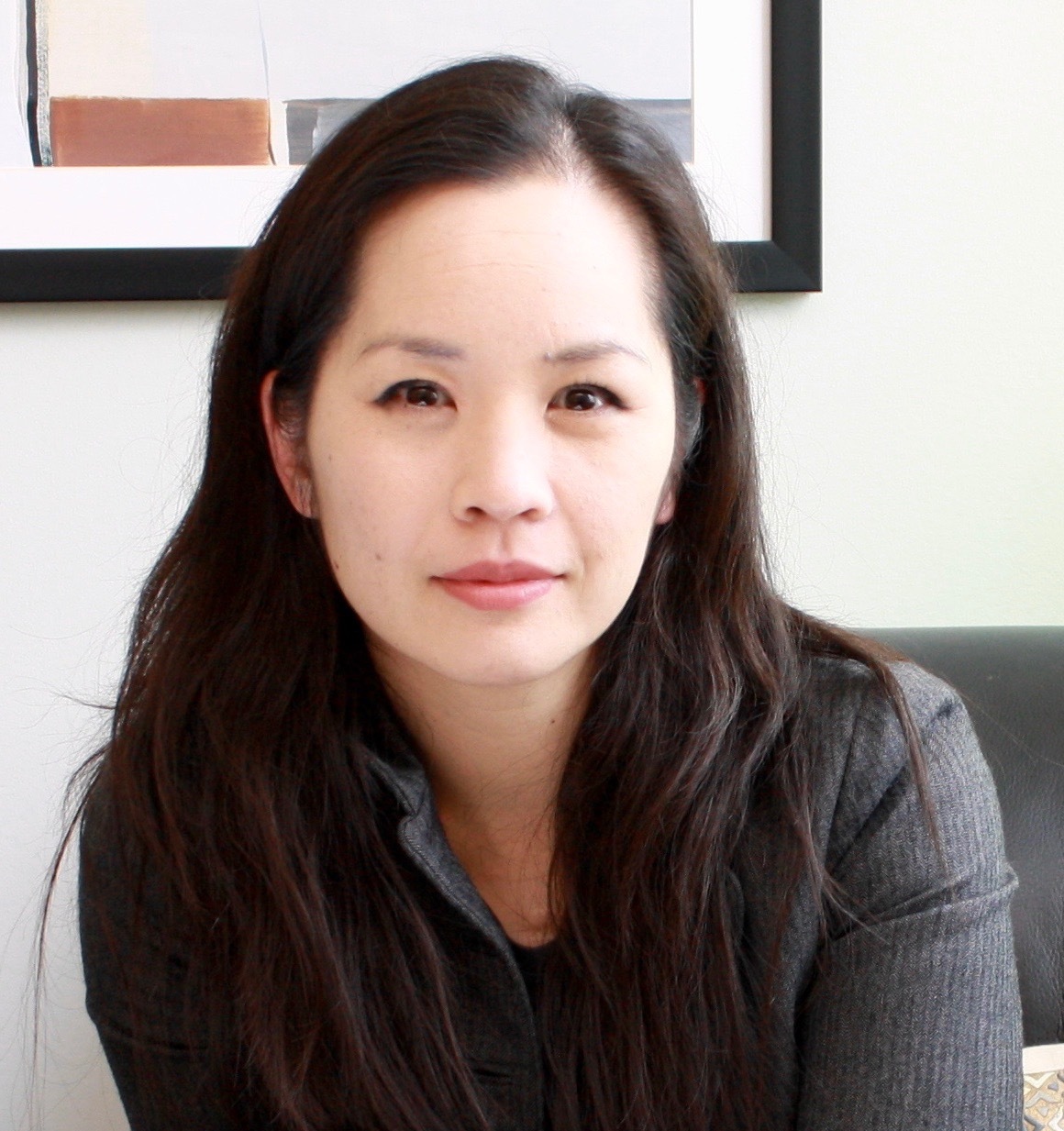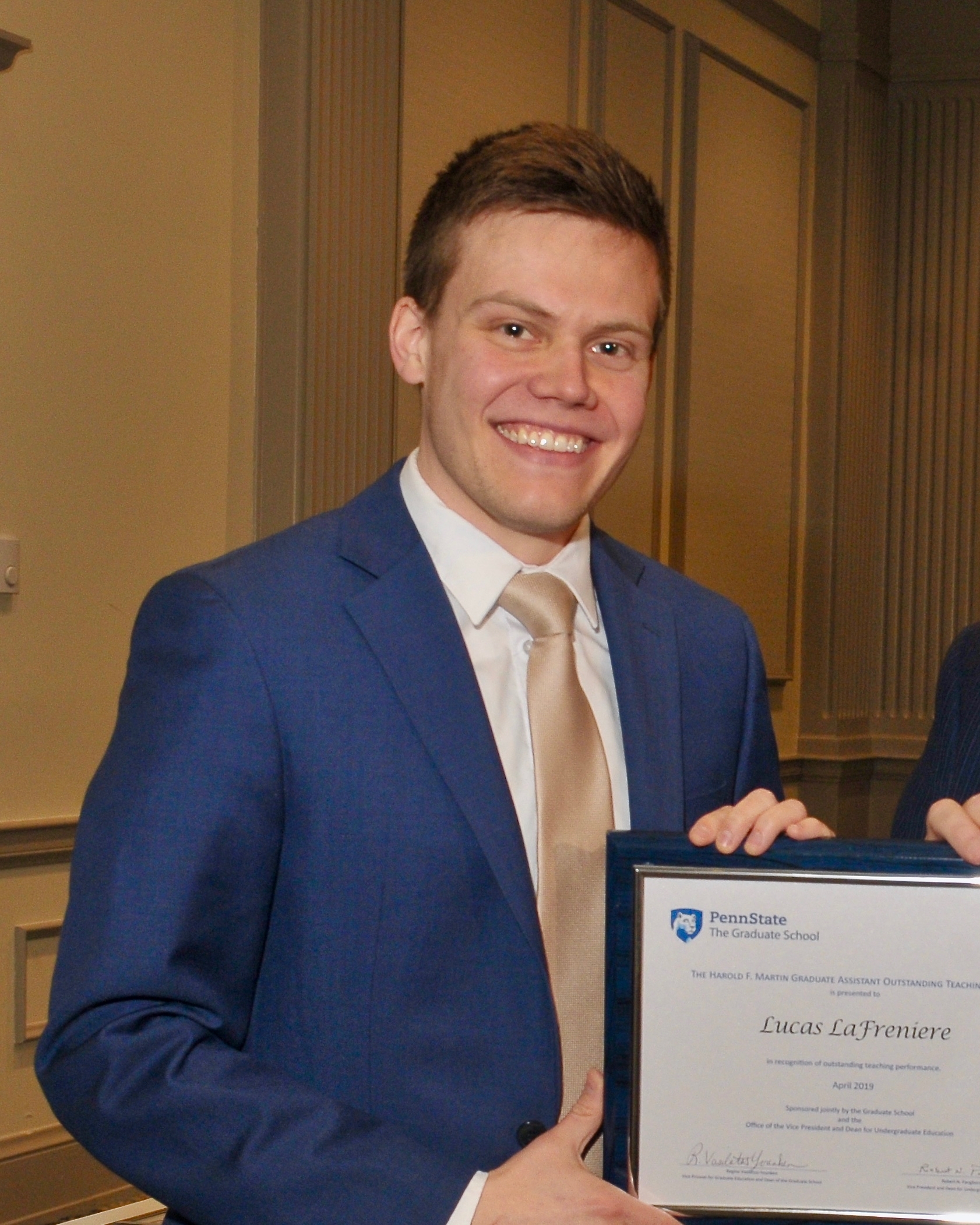
Catalog Advanced Search
-
Contains 8 Component(s), Includes Credits
Long considered an important treatment for depression, behavioral activation (BA) is a robust and transdiagnostic change process. Because reinforcement-based deficits are evident across disorders, BA is an evidence-based means of targeting reward systems and avoidance for disorders beyond depression (e.g., in PTSD, anxiety, disordered eating and substance misuse/abuse). Culturally-attuned BA combines activation with an intentional focus on personal values and meaning, and can be implemented by providers across levels of professional training. Improving session effectiveness and outcomes requires viewing age as a facet of diversity that intersects with other identities, calling for both humility and the age-appropriate application of culturally-attuned change strategies. This webinar highlights strategies and age-appropriate resources for applying BA with culturally diverse individuals across the lifespan, as we help our clients cultivate meaning in their daily lives.

Origina; Airdate: Friday, June 21, 2024
11:00 AM- 12:30 PM Eastern/ 10:00 AM – 11:30 AM Central/ 9:00 AM – 10:30 AM Mountain/ 8:00 AM – 9:30 AM Pacific
1.5 CE Credits Awarded
$15 Student ABCT Members / $25 ABCT Members / $35 Non-Members
Intermediate Level
All prices listed in US currency
Abstract:
Long considered an important treatment for depression, behavioral activation (BA) is a robust and transdiagnostic change process. Because reinforcement-based deficits are evident across disorders, BA is an evidence-based means of targeting reward systems and avoidance for disorders beyond depression (e.g., in PTSD, anxiety, disordered eating and substance misuse/abuse). Culturally-attuned BA combines activation with an intentional focus on personal values and meaning, and can be implemented by providers across levels of professional training. Improving session effectiveness and outcomes requires viewing age as a facet of diversity that intersects with other identities, calling for both humility and the age-appropriate application of culturally-attuned change strategies. This webinar highlights strategies and age-appropriate resources for applying BA with culturally diverse individuals across the lifespan, as we help our clients cultivate meaning in their daily lives.
Presenter Biography:
Ann Steffen, PhD, ABPP is a professor of psychological sciences at the University of Missouri-St. Louis and an experienced clinician, clinical supervisor and professional trainer. Dr. Steffen is a faculty clinician at the UM-St. Louis Community Psychological Service, and is dual board certified in Behavioral & Cognitive Psychology and in Geropsychology by the American Board of Professional Psychology (ABPP). She is lead author on the 2nd edition of Treating Later-Life Depression: A Cognitive-Behavioral Therapy Approach workbook and clinician guide in Oxford University Press's Treatments ThatWork Series (Steffen et al., 2021).
Learning Objectives:
At the end of this workshop, the learner will be able to:
1. Identify the features and advantages of Behavioral Activation as a transdiagnostic change strategy.
2. Discuss rationale and technique for at least three components of Behavioral Activation that are culturally congruent.
3. Describe clinician resources for age-appropriate Behavioral Activation with clients at specific points across the lifespan.
Recommended Readings:
1. Santos, M. M., Nagy, G. A., Kanter, J. W., & López, S. R. (2021). Applying a process-oriented model of cultural competence to behavioral activation for depression. Cognitive and Behavioral Practice, 28(2), 127-146.
2. Fernández-Rodríguez, C., Coto-Lesmes, R., Martínez-Loredo, V., González-Fernández, S., & Cuesta, M. (2023). Is activation the active ingredient of transdiagnostic therapies? A randomized clinical trial of behavioral activation, acceptance and commitment therapy, and transdiagnostic cognitive-behavioral therapy for emotional disorders. Behavior Modification, 47(1), 3–45.
3. Martell, C. R., Dimidjian, S., & Herman-Dunn, R. (2021). Behavioral Activation for Depression: A Clinician's Guide. Guilford Publications.
4. Wood, W. (2019). Good Habits, Bad Habits: The Science of Making Positive Changes that Stick. Macmillan Press.
5. Steffen, A. M., Thompson, L. W. & Gallagher-Thompson, D. (2021) Chapter 8: Skills for Doing: Values-Based Living and Solving Problems (pp. 127-143), in Treating Later-Life Depression: A Cognitive-Behavior Therapy Approach, Clinician Guide. Treatments That Work Series, Oxford University Press
****************************************
All attendees will receive a certificate of completion when the course requirements are satisfied. Certificate of completion is included in the cost of the webinar
The Association for Behavioral and Cognitive Therapies incurs significant administrative cost related to your registration before a webinar. Therefore, there are no refunds for live webinars. If you unable to attend a webinar, we will provide you with the recorded version after the live presentation (which is still eligible for CE credit). If you wish to cancel or request to transfer your webinar registration to another webinar please email your request to membership@abct.org.
ABCT is approved by the American Psychological Association to sponsor continuing education for psychologists. ABCT maintains responsibility for this program and its content
The Association for Behavioral and Cognitive Therapies has been approved by NBCC as an Approved Continuing Education Provider, ACEP No. 5797. Programs that do not qualify for NBCC credit are clearly identified. The Association for Behavioral and Cognitive Therapies is solely responsible for all aspects of the programs
The Association for Behavioral and Cognitive Therapies is recognized by the California Board of Behavioral Sciences for Marriage and Family Therapist (MFT) to offer continuing education as Provider #4600
Association for Behavioral and Cognitive Therapies (ABCT), is recognized by the New York State Education Department’s State Board for Psychology as an approved provider of continuing education for licensed psychologists #PSY-0124
*************************
For more information, contact:
Rachel Lamb, ABCT Membership and Marketing Manager
212-647-1890 ext. 209
rlamb@abct.org*************************
-
Register
- Non-member - $35
- Member - $25
- Student - $15
- More Information
-
Register
-
Contains 7 Product(s)
June 7, 2024 Virtual Summit
June 7, 2024 Virtual Summit
-
Register
- Non-member - $80
- Member - $70
- Student - $25
- More Information
-
Register
-
Contains 8 Component(s), Includes Credits
There is a growing call for clinicians to shift away from formulating neurodevelopmental differences as signs of pathology or deficit, and to move toward seeing these differences as part of normal human variation, much in the same way as other diversity factors (e.g., race, sexual orientation). This webinar will highlight the clinical implications of working from a neurodiversity perspective, with emphasis on the benefits of approaching care from a frame of inclusivity. Using autism spectrum disorder (ASD) as an example, Dr. Hong will explain how neurodiversity-related differences can completely shift CBT formulations of maladaptive or unwanted behaviors and how not including neurodiversity factors into the formulation can lead to poor progress and, at times, harmful outcomes. She will then offer concrete ways to incorporate neurodiversity-related differences into the formulation while also ensuring an evidence-based approach to care. Dr. Hong will also touch on ways to adapt interventions to account for neurodiversity related differences and give patients language to explain their differences and needs to others. Throughout the presentation, Dr. Hong will use real-world clinical examples to inform concepts presented. The webinar aims to help clinicians feel empowered with ways to reframe difficulties that come with holding an (often invisible) minoritized identity and use existing evidence-based treatment strategies more effectively with neurodiverse individuals.

Original Airdate: Friday, May 17, 2024
11:30 AM- 1:00 PM Eastern/ 10:30 AM – 12:00 PM Central/ 9:30 AM – 11:00 AM Mountain/ 8:30 AM – 10:00 AM Pacific
1.5 CE Credits Awarded
$15 Student ABCT Members / $25 ABCT Members / $35 Non-Members
All prices listed in US currency
Abstract:
There is a growing call for clinicians to shift away from formulating neurodevelopmental differences as signs of pathology or deficit, and to move toward seeing these differences as part of normal human variation, much in the same way as other diversity factors (e.g., race, sexual orientation). This webinar will highlight the clinical implications of working from a neurodiversity perspective, with emphasis on the benefits of approaching care from a frame of inclusivity. Using autism spectrum disorder (ASD) as an example, Dr. Hong will explain how neurodiversity-related differences can completely shift CBT formulations of maladaptive or unwanted behaviors and how not including neurodiversity factors into the formulation can lead to poor progress and, at times, harmful outcomes. She will then offer concrete ways to incorporate neurodiversity-related differences into the formulation while also ensuring an evidence-based approach to care. Dr. Hong will also touch on ways to adapt interventions to account for neurodiversity related differences and give patients language to explain their differences and needs to others. Throughout the presentation, Dr. Hong will use real-world clinical examples to inform concepts presented. The webinar aims to help clinicians feel empowered with ways to reframe difficulties that come with holding an (often invisible) minoritized identity and use existing evidence-based treatment strategies more effectively with neurodiverse individuals.
Presenter Biography:
Dr. Janie Hong (she/her) is a Clinical Associate Professor, Associate Training Director of the Adult Clinical Psychology Postdoctoral Fellowship program, and Director of the Anxiety and Depression Adult Psychological Treatment (ADAPT) Clinic at Stanford University School of Medicine. The ADAPT Clinic is the largest psychotherapy-focused clinic at Stanford and houses three large clinical programs, which include evidence-based care for mood and anxiety disorders, OCD and its related disorders, and neurodiverse individuals (ADHD program, ASD program). At Stanford, she leads clinical and trainee programming and oversees care within the ADAPT Clinic, supervises and teaches postdoctoral fellows and psychiatry residents, and provides individual patient care within the neurodiversity program. Dr. Hong’s research and clinical work has focused on expanding our templates of mental health to include diverse populations. At the start of her career, she focused on the ways a person’s ethnic and/or cultural background shapes beliefs and behaviors. Over time in her practice, she has found her work with culturally diverse individuals also applies to neurodiverse individuals and those with other diverse identities. She is deeply committed to helping diverse individuals articulate how they may differ from prevailing behavioral and emotional norms, teaching them skills to work within these norms and showing them ways to advocate for their differences.
Learning Objectives:
At the end of this workshop, the learner will be able to:
1. Identify how existing CBT formulations for a clinical problem may be limited for neurodiverse individuals.
2. Describe how incorporating diversity factors into a formulation improves clinical care for all individuals.
3. Describe ways to adapt to a case formulation to include neurodiversity factors and how including neurodiversity factors can change the treatment plan.
4. Identify ways treatment delivery can be adapted to accommodate neurodiversity related differences.
Recommended Readings:
1. Henderson, D., Wayland, S., White, J. (2023). Is this Autism? A guide for clinicians and everyone else. Routledge: New York.
2. Henderson, D., Wayland, S., White, J. (2023). Is this Autism? A companion guide for diagnosing. Routledge: New York.
3. Silberman, S. (2015). Neurotribes: The legacy of autism and how to think smarter about people who think differently. London: Allen & Unwin
****************************************
All attendees will receive a certificate of completion when the course requirements are satisfied. Certificate of completion is included in the cost of the webinar
The Association for Behavioral and Cognitive Therapies incurs significant administrative cost related to your registration before a webinar. Therefore, there are no refunds for live webinars. If you unable to attend a webinar, we will provide you with the recorded version after the live presentation (which is still eligible for CE credit). If you wish to cancel or request to transfer your webinar registration to another webinar please email your request to membership@abct.org.
ABCT is approved by the American Psychological Association to sponsor continuing education for psychologists. ABCT maintains responsibility for this program and its content
The Association for Behavioral and Cognitive Therapies has been approved by NBCC as an Approved Continuing Education Provider, ACEP No. 5797. Programs that do not qualify for NBCC credit are clearly identified. The Association for Behavioral and Cognitive Therapies is solely responsible for all aspects of the programs
The Association for Behavioral and Cognitive Therapies is recognized by the California Board of Behavioral Sciences for Marriage and Family Therapist (MFT) to offer continuing education as Provider #4600
Association for Behavioral and Cognitive Therapies (ABCT), is recognized by the New York State Education Department’s State Board for Psychology as an approved provider of continuing education for licensed psychologists #PSY-0124
*************************
For more information, contact:
Rachel Lamb, ABCT Membership and Marketing Manager
212-647-1890 ext. 209
rlamb@abct.org*************************
-
Register
- Non-member - $35
- Member - $25
- Student - $15
- More Information
-
Register
-
Contains 8 Component(s), Includes Credits
Eating disorders have been long stereotyped as disorders associated with thinness, whiteness, affluence, female gender, and youth. Although compelling data indicate that this stereotype is inaccurate and that eating disorders affect many who do not conform to the stereotype, the stereotype both persists and is often believed by health providers and laypersons alike. Importantly, research indicates that individuals who defy the eating disorder stereotype are less likely to be correctly diagnosed by providers and less likely to self-identify as having an eating disorder. The treatment of eating disorders also is commonly viewed as an area of clinical specialty; as such, many CBT practitioners, particularly those who work with populations that defy the eating disorder stereotype, obtain little if any training in the treatment and assessment of eating disorders. Combined, these factors (i.e., powerful inaccurate stereotype and lack of training) set the stage for significant diagnostic error, in particular, overlooked eating disorder diagnoses. Missed eating disorder diagnoses are problematic for numerous reasons. First, research indicates that early identification improves eating disorder clinical outcome. Second, eating disorders are associated with elevated mortality and significant medical morbidity, and failure to diagnose them can worsen medical sequelae and contribute to inappropriate medical treatment. Third, failure to diagnose an existing eating disorder can lead to incomplete and faulty clinical conceptualization and treatment planning. Finally, diagnostic accuracy is linked to the ethical principles of beneficence, non-maleficence, justice, and autonomy. The primary aim of this training is to help clinicians who have minimal eating disorders background understand why clients who they may think are at low risk for an eating disorder (e.g., those who are racially and ethnically minoritized, live in a higher weight body, identify as male, are of older age, are of lower income, identify as LGBTQIA+ etc…) are, in fact, very much potentially at risk. This webinar is also appropriate for those who have eating disorders training and can acknowledge that they, like so many in the eating disorders field, still feel the pull of the stereotype.

Dr. Carolyn Black Becker Original Airdate: Friday, April 19, 2024
11:00 AM- 12:30 PM Eastern/ 10:00 AM – 11:30 AM Central/ 9:00 AM – 10:30 AM Mountain/ 8:00 AM – 9:30 AM Pacific
1.5 CE Credits Awarded
$15 Student ABCT Members / $25 ABCT Members / $35 Non-Members
All prices listed in US currency
Abstract:
Eating disorders have been long stereotyped as disorders associated with thinness, whiteness, affluence, female gender, and youth. Although compelling data indicate that this stereotype is inaccurate and that eating disorders affect many who do not conform to the stereotype, the stereotype both persists and is often believed by health providers and laypersons alike. Importantly, research indicates that individuals who defy the eating disorder stereotype are less likely to be correctly diagnosed by providers and less likely to self-identify as having an eating disorder.
The treatment of eating disorders also is commonly viewed as an area of clinical specialty; as such, many CBT practitioners, particularly those who work with populations that defy the eating disorder stereotype, obtain little if any training in the treatment and assessment of eating disorders. Combined, these factors (i.e., powerful inaccurate stereotype and lack of training) set the stage for significant diagnostic error, in particular, overlooked eating disorder diagnoses. Missed eating disorder diagnoses are problematic for numerous reasons. First, research indicates that early identification improves eating disorder clinical outcome. Second, eating disorders are associated with elevated mortality and significant medical morbidity, and failure to diagnose them can worsen medical sequelae and contribute to inappropriate medical treatment. Third, failure to diagnose an existing eating disorder can lead to incomplete and faulty clinical conceptualization and treatment planning. Finally, diagnostic accuracy is linked to the ethical principles of beneficence, non-maleficence, justice, and autonomy.
The primary aim of this training is to help clinicians who have minimal eating disorders background understand why clients who they may think are at low risk for an eating disorder (e.g., those who are racially and ethnically minoritized, live in a higher weight body, identify as male, are of older age, are of lower income, identify as LGBTQIA+ etc…) are, in fact, very much potentially at risk. This webinar is also appropriate for those who have eating disorders training and can acknowledge that they, like so many in the eating disorders field, still feel the pull of the stereotype.
Presenter Biography:
Carolyn Black Becker, Ph.D. is a Professor of Psychology and licensed clinical psychologist who specializes in the treatment of eating disorders, PTSD, and anxiety-based disorders. She is board certified in behavioral and cognitive therapy. Dr. Becker has published numerous peer-reviewed papers, and she co-authored Exposure for Eating Disorders and Eating without Fear: Harnessing Science to Confront and Overcome Your Eating Disorder published by Oxford University Press and Cognitive Behavior Therapy for PTSD: A Case Formulation Approach by Guilford Press. She also is considered a leader in the delivery of peer-led body image programs, and conducted seminal research into the association of eating disorders and food insecurity. Dr. Becker is a fellow of the Academy for Eating Disorders, the Association for Behavioral and Cognitive Therapies (ABCT), and the Association for Psychological Science. She is past president of the Society for a Science of Clinical Psychology and the Academy for Eating Disorders. She also served as Representative at Large for Membership on the Board of ABCT. Dr. Becker has received numerous awards including the 2009 Lori Irving Award for Excellence in Eating Disorders Prevention and Awareness granted by the National Eating Disorders Association, a 2011-2012 Fellowship at the Center for Advanced Study in the Behavioral Sciences at Stanford University, the 2012 Research-Practice Partnership award from the Academy for Eating Disorders, and a 2017 Piper Professor award from the Minnie Stevens Piper Foundation.
Learning Objectives:
At the end of this workshop, the learner will be able to:
1. Critique the eating disorder stereotype.
2. Explain why eating disorder diagnostic errors are an ethical issue.
3. Describe evidence supporting the contention that eating disorders affect those who defy the eating disorders stereotype
4. Adopt a more inclusive perspective regarding client risk for eating disorders
Recommended Readings:
1. Burke, N. L., Hazzard, V. M., Schaefer, L. M., Simone, M., O'Flynn, J. L., & Rodgers, R. F. (2023). Socioeconomic status and eating disorder prevalence: at the intersections of gender identity, sexual orientation, and race/ethnicity. Psychological Medicine, 53(9), 4255-4265.
2. Burke, N. L., Schaefer, L. M., Hazzard, V. M., & Rodgers, R. F. (2020). Where identities converge: The importance of intersectionality in eating disorders research. International Journal of Eating Disorders, 53(10), 1605-1609.
3. Bryant, E., Spielman, K., Le, A., Marks, P., Touyz, S., & Maguire, S. (2022). Screening, assessment and diagnosis in the eating disorders: findings from a rapid review. Journal of Eating Disorders, 10(1), 78.
4. Harrop, E. N., Hutcheson, R., Harner, V., Mensinger, J. L., & Lindhorst, T. (2023). “You Don’t Look Anorexic”: Atypical anorexia patient experiences of weight stigma in medical care. Body Image, 46, 48-61.
5. Harrop, E. N., Mensinger, J. L., Moore, M., & Lindhorst, T. (2021). Restrictive eating disorders in higher weight persons: A systematic review of atypical anorexia nervosa prevalence and consecutive admission literature. International Journal of Eating Disorders, 54(8), 1328-1357.
6. Kilpela, L. S., Marshall, V. B., Keel, P. K., LaCroix, A. Z., Espinoza, S. E., Hooper, S. C., & Musi, N. (2022). The clinical significance of binge eating among older adult women: an investigation into health correlates, psychological wellbeing, and quality of life. Journal of Eating Disorders, 10(1), 97.
7. Sonneville, K. R., & Lipson, S. K. (2018). Disparities in eating disorder diagnosis and treatment according to weight status, race/ethnicity, socioeconomic background, and sex among college students. International Journal of Eating Disorders, 51(6), 518-526.
****************************************
All attendees will receive a certificate of completion when the course requirements are satisfied. Certificate of completion is included in the cost of the webinar
The Association for Behavioral and Cognitive Therapies incurs significant administrative cost related to your registration before a webinar. Therefore, there are no refunds for live webinars. If you unable to attend a webinar, we will provide you with the recorded version after the live presentation (which is still eligible for CE credit). If you wish to cancel or request to transfer your webinar registration to another webinar please email your request to membership@abct.org.
ABCT is approved by the American Psychological Association to sponsor continuing education for psychologists. ABCT maintains responsibility for this program and its content
The Association for Behavioral and Cognitive Therapies has been approved by NBCC as an Approved Continuing Education Provider, ACEP No. 5797. Programs that do not qualify for NBCC credit are clearly identified. The Association for Behavioral and Cognitive Therapies is solely responsible for all aspects of the programs
The Association for Behavioral and Cognitive Therapies is recognized by the California Board of Behavioral Sciences for Marriage and Family Therapist (MFT) to offer continuing education as Provider #4600
Association for Behavioral and Cognitive Therapies (ABCT), is recognized by the New York State Education Department’s State Board for Psychology as an approved provider of continuing education for licensed psychologists #PSY-0124
*************************
For more information, contact:
Rachel Lamb, ABCT Membership and Marketing Manager
212-647-1890 ext. 209
rlamb@abct.org*************************
-
Register
- Non-member - $35
- Member - $25
- Student - $15
- More Information
-
Register
-
Contains 8 Component(s), Includes Credits
According to the CDC, nearly 80,000 people died from opioid-related overdose deaths in 2022 in the US. The opioid epidemic remains an urgent concern that requires continued attention and treatment, particularly by medical and mental health providers. This 90-minute presentation will provide a brief overview of the current state of opioid use within the US along with a review of the best practices to assess, diagnose and treat individuals with opioid use disorders (OUDs). The primary focus will be on the evidence-based treatments including pharmacologic and therapeutic interventions. Ethical considerations and barriers to treatment will be explored in addition to important sociocultural factors and resources available to aid providers in effectively treating individuals with OUD in outpatient settings.

Dr. Samantha Lookatch Original Air Date: Friday, March 22, 2024
12:00 PM- 1:30 PM Eastern/ 11:00 AM – 12:30 PM Central/ 10:00 AM – 11:30 AM Mountain/ 9:00 AM – 10:30 AM Pacific
1.5 CE Credits Awarded
$15 Student ABCT Members / $25 ABCT Members / $35 Non-Members
All prices listed in US currency
Abstract:
According to the CDC, nearly 80,000 people died from opioid-related overdose deaths in 2022 in the US. The opioid epidemic remains an urgent concern that requires continued attention and treatment, particularly by medical and mental health providers. This 90-minute presentation will provide a brief overview of the current state of opioid use within the US along with a review of the best practices to assess, diagnose and treat individuals with opioid use disorders (OUDs). The primary focus will be on the evidence-based treatments including pharmacologic and therapeutic interventions. Ethical considerations and barriers to treatment will be explored in addition to important sociocultural factors and resources available to aid providers in effectively treating individuals with OUD in outpatient settings.
Presenter Biography:
Sam Lookatch, Ph.D. earned her doctoral degree in clinical psychology from the University of Tennessee. She completed internship at the Hazelden Betty Ford Foundation and a post-doctoral fellowship at the Cpl. Michael J. Crescenz VAMC in Philadelphia. Her past research broadly focused on addiction treatment outcomes, specifically exploring the role of social support in the enhancement of addiction treatment. Dr. Lookatch is a licensed clinical psychologist specializing in the treatment of substance use and other co-occurring mental health disorders. She also works with families of individuals struggling with substance use disorders and provides treatment through assessment, individual and group therapy in the Smithers Center within the outpatient Faculty Practice Organization at Columbia University Medical Center. Dr. Lookatch is passionate about working with people impacted by substance use and helping people recognize their capacity for change and progress.
Learning Objectives:
At the end of this workshop, the learner will be able to:
1. Accurately identify symptoms and diagnose an OUD with DSM-5-TR guidelines as well as cultural considerations.
2. Explain the indicated treatments and clinical practice guidelines for treating individuals with OUDs relevant to individual therapists.
3. Create a treatment plan that includes evidence-based practices and indicated referrals to ensure individuals are aware of multifaceted treatment offerings and able to access necessary care to treat an OUD.
4. Identify provider resources to obtain opioid overdose response training.
Recommended Readings:
1. Borsari, B., & Read, J. P. (2019). Introduction to the special issue: Responding to the opioid crisis: Perspectives, challenges and directions. Journal of Consulting and Clinical Psychology, 87(10), 845.
2. Mumba, M. N., Findlay, L. J., & Snow, D. E. (2018). Treatment options for opioid use disorders: a review of the relevant literature. Journal of Addictions Nursing, 29(3), 221-225.
3. Taylor, J. L., Johnson, S., Cruz, R., Gray, J. R., Schiff, D., & Bagley, S. M. (2021). Integrating harm reduction into outpatient opioid use disorder treatment settings: harm reduction in outpatient addiction treatment. Journal of General Internal Medicine, 36(12), 3810-3819.
4. Koehl, J. L., Zimmerman, D. E., & Bridgeman, P. J. (2019). Medications for management of opioid use disorder. American Journal of Health-System Pharmacy, 76(15), 1097-1103.
Moderator:
Courtney DeAngelis, Psy.D. is an Assistant Professor within the Division of Child and Adolescent Psychiatry at Columbia University. She is a licensed clinical psychologist and clinical supervisor at the Columbia University Clinic for Anxiety and Related Disorders (CUCARD-Westchester). She also dedicates her time to the development of continuing education programming, with a mission to disseminate research and clinical knowledge to improve clinical competencies and patient outcomes. Dr. DeAngelis received her doctoral degree in clinical psychology from La Salle University. She completed her predoctoral internship at the Kennedy Krieger Institute at the Johns Hopkins School of Medicine, and her postdoctoral fellowship at CUCARD-Westchester.
****************************************
All attendees will receive a certificate of completion when the course requirements are satisfied. Certificate of completion is included in the cost of the webinar
The Association for Behavioral and Cognitive Therapies incurs significant administrative cost related to your registration before a webinar. Therefore, there are no refunds for live webinars. If you unable to attend a webinar, we will provide you with the recorded version after the live presentation (which is still eligible for CE credit). If you wish to cancel or request to transfer your webinar registration to another webinar please email your request to membership@abct.org.
ABCT is approved by the American Psychological Association to sponsor continuing education for psychologists. ABCT maintains responsibility for this program and its content
The Association for Behavioral and Cognitive Therapies has been approved by NBCC as an Approved Continuing Education Provider, ACEP No. 5797. Programs that do not qualify for NBCC credit are clearly identified. The Association for Behavioral and Cognitive Therapies is solely responsible for all aspects of the programs
The Association for Behavioral and Cognitive Therapies is recognized by the California Board of Behavioral Sciences for Marriage and Family Therapist (MFT) to offer continuing education as Provider #4600
Association for Behavioral and Cognitive Therapies (ABCT), is recognized by the New York State Education Department’s State Board for Psychology as an approved provider of continuing education for licensed psychologists #PSY-0124
*************************
For more information, contact:
Rachel Lamb, ABCT Membership and Marketing Manager
212-647-1890 ext. 209
rlamb@abct.org*************************
-
Register
- Non-member - $35
- Member - $25
- Student - $15
- More Information
-
Register
-
Contains 2 Component(s)
Socrates was pronounced by the ancient Oracle as the wisest of his time. His philosophy was all about overcoming our ignorance and living a good life. From his teachings, many lines of philosophy were born. Ancient Stoicism was born out of Socratic wisdom. In the last decade there has been an explosion of interest in Stoicism worldwide. While ‘lowercase s’ stoicism conveys the idea of being unemotional or emotionally suppressed, ‘capital S’ Stoicism is a philosophy and ancient wisdom that dates back over 2000 years. Albert Ellis famously quoted the Roman philosopher Epictetus who said, “Men are not disturbed by things, but by their view of things.” Hundreds of years prior to Epictetus, Chrysippus wrote the first CBT book called On Emotions which detailed how our emotional reactions were influenced by our interpretations of situations (thoughts). There is a wealth of Stoic wisdom that CBT has yet to capitalize on. Notably, the goal of Stoicism is to tolerate discomfort and focus on living a good life that is in line with your values. In this way, Stoicism is actually more compatible with mindfulness- and acceptance-based approaches like modern Acceptance and Commitment Therapy. This webinar will focus on the methods of Socrates (Socratic Questioning) and the lived philosophy that was born from his work (Stoicism). This talk is being offered as a fundraiser for the World Confederation of Cognitive Behavioral Therapies. Dr Scott Waltman will be speaking as a Global Ambassador of that organization. The talk will be geared toward clinicians, Stoics, and mental health consumers.

Original Air Date: Thursday, March 14, 2024
12:00 PM- 2:00 PM Eastern/ 11:00 AM – 1:00 PM Central/ 10:00 AM – 12:00 PM Mountain/ 9:00 AM – 11:00 AM Pacific
NO CE CREDITS OFFERED
Free Registration
All prices listed in US currency
Abstract:
Socrates was pronounced by the ancient Oracle as the wisest of his time. His philosophy was all about overcoming our ignorance and living a good life. From his teachings, many lines of philosophy were born. Ancient Stoicism was born out of Socratic wisdom. In the last decade there has been an explosion of interest in Stoicism worldwide. While ‘lowercase s’ stoicism conveys the idea of being unemotional or emotionally suppressed, ‘capital S’ Stoicism is a philosophy and ancient wisdom that dates back over 2000 years. Albert Ellis famously quoted the Roman philosopher Epictetus who said, “Men are not disturbed by things, but by their view of things.” Hundreds of years prior to Epictetus, Chrysippus wrote the first CBT book called On Emotions which detailed how our emotional reactions were influenced by our interpretations of situations (thoughts). There is a wealth of Stoic wisdom that CBT has yet to capitalize on. Notably, the goal of Stoicism is to tolerate discomfort and focus on living a good life that is in line with your values. In this way, Stoicism is actually more compatible with mindfulness- and acceptance-based approaches like modern Acceptance and Commitment Therapy. This webinar will focus on the methods of Socrates (Socratic Questioning) and the lived philosophy that was born from his work (Stoicism). This talk is being offered as a fundraiser for the World Confederation of Cognitive Behavioral Therapies. Dr Scott Waltman will be speaking as a Global Ambassador of that organization. The talk will be geared toward clinicians, Stoics, and mental health consumers.
Presenter Biography:
Scott H Waltman, PsyD, ABPP, is a clinician, international trainer, and practice-based researcher. His interests include evidence-based psychotherapy practice, training, and implementation in systems that provide care to underserved populations. He is president-elect of the Academy of Cognitive & Behavioral Therapies. He is also a board member of the International Association of Cognitive Behavioral Therapies. He is board certified in Behavioral and Cognitive Psychology from the American Board of Professional Psychology. Dr. Waltman, worked as a CBT trainer for one of Dr. Aaron Beck’s CBT implementation teams in the Philadelphia public mental health system. Currently, he works as a clinical psychologist in private practice and a managed care system, where he is a frontline clinician and practice-based researcher.
Learning Objectives:
At the end of this workshop, the learner will be able to:
1. Describe one framework for Socratic Questioning
2. Troubleshoot two common challenges to Socratic Questioning
3. Describe the connection between Socrates, ancient Stoicism, and Modern CBT
4. Use a least two Stoicism strategies in current practice
Recommended Readings:
1. Clark, G. I., & Egan, S. J. (2018). Clarifying the role of the Socratic method in CBT: A survey of expert opinion. International Journal of Cognitive Therapy, 11, 184-199.
2. Kazantzis, N., Fairburn, C. G., Padesky, C. A., Reinecke, M., & Teesson, M. (2014). Unresolved issues regarding the research and practice of cognitive behavior therapy: The case of guided discovery using Socratic questioning. Behaviour Change, 31(1), 1-17.3. Kazantzis, N., & Stuckey, M. E. (2018). Inception of a discovery: Re-defining the use of Socratic dialogue in cognitive behavioral therapy. International Journal of Cognitive Therapy, 11, 117-123.
4. Vittorio, L. N., Murphy, S. T., Braun, J. D., & Strunk, D. R. (2022). Using Socratic questioning to promote cognitive change and achieve depressive symptom reduction: evidence of cognitive change as a mediator. Behaviour research and therapy, 150, 104035.
****************************************
The Association for Behavioral and Cognitive Therapies incurs significant administrative cost related to your registration before a webinar. Therefore, there are no refunds for live webinars.
The International Association of Cognitive Behavioral Therapy is approved by the American Psychological Association to sponsor continuing education for psychologists. The International Association of Cognitive Behavioral Therapy maintains responsibility for this program and its content. This recording does not offer CE credits.
*************************
For more information, contact:
Rachel Lamb, ABCT Membership and Marketing Manager
212-647-1890 ext. 209
rlamb@abct.org*************************
-
Register
- Non-member - Free!
- Member - Free!
- Student - Free!
- More Information
-
Register
-
Contains 8 Component(s), Includes Credits
Pediatric anxiety disorders are common, with prevalence rates ranging from 9-20% (Bitsko et al., 2022; Costello, Egger, & Angold, 2005). Excessive symptoms of anxiety that are impairing but do not meet diagnostic thresholds are also common (Costello & Shugart, 1992; Rapee et al., 2012) and the COVID-19 pandemic has led to significant increases in anxiety (and other youth mental health problems; Ravens-Sieberer et al., 2021; Castagnoli et al., 2020). Moreover, it is well established that untreated anxiety has a broad range of negative effects on academic, social, and familial functioning (Swan & Kendall, 2016). Despite the high prevalence of impairing anxiety, the majority of these youth remain unidentified and untreated. One approach to address the service utilization gap, is to deliver interventions in schools. School-based interventions improve access to care –especially for youth in rural and under-resourced communities where mental health specialists are sparse. This webinar will present the basic components of school-based interventions for youth with anxiety. The talk will also focus on efforts to enhance the capacity of non-mental health specialists, such as school nurses and teachers, to assist youth with anxiety.

Original Air Date: Thursday, February 8, 2024
11:00 AM- 12:30 PM Eastern/ 10:00 AM – 11:30 AM Central/ 9:00 AM – 10:30 AM Mountain/ 8:00 AM – 9:30 AM Pacific
1.5 CE Credits Awarded
$15 Student ABCT Members / $25 ABCT Members / $35 Non-Members
All prices listed in US currency
Abstract:
Pediatric anxiety disorders are common, with prevalence rates ranging from 9-20% (Bitsko et al., 2022; Costello, Egger, & Angold, 2005). Excessive symptoms of anxiety that are impairing but do not meet diagnostic thresholds are also common (Costello & Shugart, 1992; Rapee et al., 2012) and the COVID-19 pandemic has led to significant increases in anxiety (and other youth mental health problems; Ravens-Sieberer et al., 2021; Castagnoli et al., 2020). Moreover, it is well established that untreated anxiety has a broad range of negative effects on academic, social, and familial functioning (Swan & Kendall, 2016). Despite the high prevalence of impairing anxiety, the majority of these youth remain unidentified and untreated. One approach to address the service utilization gap, is to deliver interventions in schools. School-based interventions improve access to care –especially for youth in rural and under-resourced communities where mental health specialists are sparse. This webinar will present the basic components of school-based interventions for youth with anxiety. The talk will also focus on efforts to enhance the capacity of non-mental health specialists, such as school nurses and teachers, to assist youth with anxiety.
Presenter Biography:
Golda S. Ginsburg, Ph.D., Professor of Psychiatry at University of Connecticut School of Medicine, has been developing and evaluating interventions for youth with a range of psychiatric disorders for over 25 years. A primary focus of her research has been on identifying the best approach to treat and prevent pediatric anxiety disorders—one of the most prevalent psychiatric disorders in youth. Dr. Ginsburg was a leader of the landmark NIMH-funded multisite comparative trial examining the relative efficacy of cognitive behavioral therapy (CBT), selective serotonin reuptake inhibitors, their combination, and pill placebo for pediatric anxiety disorders. She was also the Principal Investigator (PI) of the multi-site follow up study examining the long-term outcomes of youth treated in this study. Dr. Ginsburg’s current work focuses on the dissemination of evidenced-based treatments for pediatric anxiety (as most youth with anxiety do not receive treatment). For instance, with funding from NIMH and the US Department of Education, she developed a modular CBT intervention for school clinicians and conducted a large RCT trial to evaluate its effectiveness. In addition, she recently developed a school-nurse intervention to improve their ability to identify and reduce anxiety in youth and previously completed a study developing a brief anxiety reduction intervention delivered by pediatricians in primary care settings. She also recently developed a teacher-delivered intervention for students with excessive anxiety and is now developing an intervention to support students with anxiety as they transition from elementary to middle school. Dr. Ginsburg has also focused her efforts on preventing the onset of anxiety disorders and has developed and tested an anxiety preventive intervention for offspring of anxious parents; she was funded by NIMH to examine the long-term follow up of these youth as well. Dr. Ginsburg’s lab at UConn—the Child and Adolescent Anxiety and Depression Program (CAMP; website: CAMP Lab | UConn Health) recently completed a clinical trial in community mental health clinics comparing three different talk therapies for adolescents with anxiety and/or depression—a project with the University of Miami. She has been the PI or Co-PI on over 10 federally and/or privately funded clinical trials, including the large NIMH-funded landmark multi-site clinical trials for depression (Treatment of Adolescent Depression Study; TADS) and Tourette’s (Comprehensive Behavioral Intervention for Tics; CBIT).
Learning Objectives:
At the end of this workshop, the learner will be able to:
1. Identify at least one anxiety-specific assessment tool.
2. Identify at least one evidence-based intervention strategy for reducing student anxiety.
3. Identify two benefits of school-based interventions for anxiety.
Recommended Readings:
1. Ginsburg, G. S. & Smith, I. (2023). Interventions for students with anxiety. In Evans, S. Owens, J. Bradshaw, C. & Weist, M. (EDs). Handbook of School Mental Health - Innovations in Science and Practice, Third Edition. Springer Publishers.
2. Conroy, K., Hong, N., Poznanski, B., Hart, K.C., Ginsburg, G.S., Fabiano, G.A., & Comer, J.S. (2022). Harnessing home-school partnerships and school consultation to support youth with anxiety disorders. Cognitive and Behavioral Practice, 29, 381-399.
3. Piselli, K., Pella, J. E., Chan, G., & Ginsburg, G. S*. (2022). The teacher anxiety program for elementary students: Open trial results. Education and Treatment of Children, 45, (1) 33-50.
4. Ginsburg, G. S*. Pella, J. Slade, E. (2022) Cost-Effectiveness Analysis of School-Based Treatments for Anxiety Disorders. Journal of Mental Health Policy and Economics, 25, 91-103.
5. Ginsburg, G. S*., Drake, K. L., Muggeo, M.A., Stewart, C. E., Pkulski, P.J., Zheng, D., & Harel, O. (2021). A pilot RCT of a school nurse delivered intervention to reduce student anxiety. Journal of Clinical Child & Adolescent Psychology, 50 (2) 177-186. DOI: 10.1080/15374416.2019.1630833
About the Moderator:
Emily Becker-Haimes, Ph.D. is an Assistant Professor at the University of Pennsylvania’s Center for Mental Health and the clinical director of the Pediatric Anxiety Treatment Center at Hall Mercer, which is the only specialty anxiety clinic in Philadelphia dedicated to serving youth in the public mental health system. She is an implementation scientist and clinical psychologist whose research and clinical work is dedicated to improving mental health service quality in specialty mental health settings for youth. Dr. Becker-Haimes received her doctoral degree in child clinical psychology from the University of Miami. She completed her predoctoral internship at the Children’s Hospital of Philadelphia and her postdoctoral fellowship at the University of Pennsylvania.
****************************************
All attendees will receive a certificate of completion when the course requirements are satisfied. Certificate of completion is included in the cost of the webinar
The Association for Behavioral and Cognitive Therapies incurs significant administrative cost related to your registration before a webinar. Therefore, there are no refunds for live webinars. If you unable to attend a webinar, we will provide you with the recorded version after the live presentation (which is still eligible for CE credit). If you wish to cancel or request to transfer your webinar registration to another webinar please email your request to membership@abct.org.
ABCT is approved by the American Psychological Association to sponsor continuing education for psychologists. ABCT maintains responsibility for this program and its content
The Association for Behavioral and Cognitive Therapies has been approved by NBCC as an Approved Continuing Education Provider, ACEP No. 5797. Programs that do not qualify for NBCC credit are clearly identified. The Association for Behavioral and Cognitive Therapies is solely responsible for all aspects of the programs
The Association for Behavioral and Cognitive Therapies is recognized by the California Board of Behavioral Sciences for Marriage and Family Therapist (MFT) to offer continuing education as Provider #4600
Association for Behavioral and Cognitive Therapies (ABCT), is recognized by the New York State Education Department’s State Board for Psychology as an approved provider of continuing education for licensed psychologists #PSY-0124
*************************
For more information, contact:
Rachel Lamb, ABCT Membership and Marketing Manager
212-647-1890 ext. 209
rlamb@abct.org*************************
-
Register
- Non-member - $35
- Member - $25
- Student - $15
- More Information
-
Register
-
Contains 8 Component(s), Includes Credits
This workshop describes ethical issues in treating suicidal patients and distinguishes between the roles of laws, risk management, and ethics. Using safety planning-type interventions as an example, the presenter will illustrate how psychotherapists can enhance the quality of their interventions by paying particular attention to ethical principles.

Original Airdate: Friday, January 19, 2024
11:00 AM- 12:30 PM Eastern/ 10:00 AM – 11:30 AM Central/ 9:00 AM – 10:30 AM Mountain/ 8:00 AM – 9:30 AM Pacific
1.5 CE Credits Awarded
$15 Student ABCT Members / $25 ABCT Members / $35 Non-Members
All prices listed in US currency
Abstract:
This workshop describes ethical issues in treating suicidal patients and distinguishes between the roles of laws, risk management, and ethics. Using safety planning-type interventions as an example, the presenter will illustrate how psychotherapists can enhance the quality of their interventions by paying particular attention to ethical principles.
Presenter Biography:
Samuel Knapp is a retired psychologist who was the Director of Professional Affairs for the Pennsylvania Psychological Association from 1987 to 2021. He also taught in the doctoral programs in psychology at Lehigh University and the Philadelphia College of Osteopathic Medicine. He has written many books and made many presentations on ethics, self-care, and suicide prevention.
Learning Objectives:
At the end of this workshop, the learner will be able to:
1. Identify the ethical principles related to the treatment of suicidal patients.
2. Describe the importance of applying ethical principles, such as respect for patient decision-making, when working with suicidal patients.
3. Design better safety planning-type interventions and lethal means counseling sessions by focusing on respect for patient autonomy.
Recommended Readings:
1. Bryan, C. J. (2022). Rethinking suicide. Oxford.
2. Knapp, S., Younggren, J., VandeCreek, L., Harris, E., & Martin, J. (2013). Assessing and managing risk in psychological practice: An individualized approach. (2nd ed). The Trust.
3. Knapp, S., & Fingerhut, R. (2023). Practical ethics for psychologists: A positive approach. American Psychological Association.
4. Knapp, S. (2023). Lethal means counseling for suicidal firearm owners. Journal of Contemporary Psychotherapy, 53(4), 279-287. http://doi.org/10.1007/s108979-023-09588
5. Knapp, S. (2023). The essentials of creating effective safety-planning type interventions for suicidal patients. Practice Innovations, 8(2), 131-140. http://doi.org/10.1037/pri0000...
6. Knapp, S. (in press). Laws, risk management, and ethics when working with suicidal patients. Professional Psychology: Research and Practice.
7. Knapp, S. (in press). Listen, explain, involve, and evaluate: Why respecting patient autonomy benefits suicidal patients. Ethics and Behavior, http://doi.org/10.1080/10508422.2022.215338
8. Nuij, C., van Ballegooijen, W., de Beurs, D., Juniar, D., Erlangsen, A., Portzky, G., O’Connor, R. C., Smit, J. H., Kerkhof, A., & Riper, H. (2021). Safety planning-type interventions for suicide prevention: meta-analysis. British Journal of Psychiatry, 219(2), 419-426. http://doi.org/10.1192/bjp.2021.50
9. O’Connor, R. (2021). When it is darkest. Vermillion.
About the Moderator:
Jeremy Tyler, Psy.D., is an Assistant Professor of Clinical Psychiatry at the University of Pennsylvania Perelman School of Medicine. Dr. Tyler is the Director of Psychotherapy for the Penn Medicine Outpatient Psychiatry Center, Director of the Penn Medicine TEAM Clinic, and the Director of Postdoctoral Training at the Center for the Treatment and Study of Anxiety. Dr. Tyler’s clinical expertise is in the delivery of evidence-based therapies for OCD, PTSD, and anxiety disorders. Dr. Tyler’s research interests include understanding the role of transdiagnostic mechanisms involved in the treatment of anxiety-related disorders, including OCD and PTSD, with a particular interest in the role of anxiety sensitivity, perfectionism, and emotion regulation.
****************************************
All attendees will receive a certificate of completion when the course requirements are satisfied. Certificate of completion is included in the cost of the webinar
The Association for Behavioral and Cognitive Therapies incurs significant administrative cost related to your registration before a webinar. Therefore, there are no refunds for live webinars. If you unable to attend a webinar, we will provide you with the recorded version after the live presentation (which is still eligible for CE credit). If you wish to cancel or request to transfer your webinar registration to another webinar please email your request to membership@abct.org.
ABCT is approved by the American Psychological Association to sponsor continuing education for psychologists. ABCT maintains responsibility for this program and its content
The Association for Behavioral and Cognitive Therapies has been approved by NBCC as an Approved Continuing Education Provider, ACEP No. 5797. Programs that do not qualify for NBCC credit are clearly identified. The Association for Behavioral and Cognitive Therapies is solely responsible for all aspects of the programs
The Association for Behavioral and Cognitive Therapies is recognized by the California Board of Behavioral Sciences for Marriage and Family Therapist (MFT) to offer continuing education as Provider #4600
Association for Behavioral and Cognitive Therapies (ABCT), is recognized by the New York State Education Department’s State Board for Psychology as an approved provider of continuing education for licensed psychologists #PSY-0124
*************************
For more information, contact:
Rachel Lamb, ABCT Membership and Marketing Manager
212-647-1890 ext. 209
rlamb@abct.org*************************
-
Register
- Non-member - $35
- Member - $25
- Student - $15
- More Information
-
Register
-
Contains 2 Component(s)
Despite the proliferation of evidence-based psychological interventions and other effective services in global mental health, there has been a lack of standardized approach to measure competency of non-specialist and specialists providing mental health services. Moreover, governments, national professional organizations, and training institutions have not had a mechanism to ensure that providers are delivering safe and effective care. To address this gap, the World Health Organization and UNICEF have developed Ensuring Quality in Psychological Support and Mental Health Services (EQUIP). EQUIP is an initiative with a suite of easy-to-use competency assessment tools in standardized role plays and a digital platform for providing real-time visualizations and feedback to improve training and supervision. In this webinar we will provide an introduction to EQUIP and provide examples of its use in various contexts and sectors, including in pre service education settings.

The World Confederation of CBT (WCCBT)
invites you to view a Free Recorded Webinar -
An introduction to the W.H.O-UNICEF
Ensuring Quality in Psychosocial and Mental Health Support
(EQUIP) Initiative
Presented by: Dr. James Underhill
EQUIP Project Coordinator
Department of Mental Health and Substance Use
World Health Organization (W.H.O.)
Moderator: Dr. Lata McGinn
President, World Confederation of CBT (WCCBT)
Free Registration
*This free webinar does not offer CE credit*
Original Airdate:
Wednesday, December 20, 2023
4:00 PM- 4:50 PM Eastern
Abstract:
Despite the proliferation of evidence-based psychological interventions and other effective services in global mental health, there has been a lack of standardized approach to measure competency of non-specialist and specialists providing mental health services. Moreover, governments, national professional organizations, and training institutions have not had a mechanism to ensure that providers are delivering safe and effective care. To address this gap, the World Health Organization and UNICEF have developed Ensuring Quality in Psychological Support and Mental Health Services (EQUIP). EQUIP is an initiative with a suite of easy-to-use competency assessment tools in standardized role plays and a digital platform for providing real-time visualizations and feedback to improve training and supervision. In this webinar we will provide an introduction to EQUIP and provide examples of its use in various contexts and sectors, including in pre service education settings.
Presenter Biography:
Dr James Underhill is a clinical psychologist and the Ensuring Quality in Psychological Support (EQUIP) Project Coordinator for the WHO Department of Mental Health and Substance Use. He also supports the department with its work on scalable psychological interventions and digital mental health.
James has extensive experience in clinical and humanitarian work, creating and developing innovative services for trauma and GBV survivors, refugee populations and adolescents involved in serious youth violence.
In his role as EQUIP coordinator, James has been centrally involved in the development and public release of the EQUIP digital platform (https://equipcompetency.org/en-gb) which is part of a joint WHO/UNICEF project to improve the competence of helpers and the consistency and quality of training in psychological interventions and service delivery.
Recommended Readings:
1. Kohrt, B. A., Jordans, M. J. D., Rai, S., Shrestha, P., Luitel, N. P., Ramaiya, M. K., Singla, D. R., & Patel, V. (2015). Therapist competence in global mental health: Development of the ENhancing Assessment of Common Therapeutic factors (ENACT) rating scale. Behaviour Research and Therapy, 69, 11–21. https://doi.org/10.1016/j.brat.2015.03.009
2. Jordans, M., Steen, F., Koppenol-Gonzalez, G., El Masri, R., Coetzee, A., Chamate, S., Ghatasheh, M., Pederson, G.A., Itani, M., El Chammay, R., Schafer, A., and Kohrt, B. (2022). Evaluation of competency-driven training for facilitators delivering a psychological intervention for children in Lebanon: A proof-of-concept study. Epidemiology and Psychiatric Sciences, 31, E48. https://doi.org/10.1017/S2045796022000348
3. Kohrt, B. A., Schafer, A., Willhoite, A., van’t Hof, E., Pedersen, G. A., Watts, S., Ottman, K., Carswell, K., & van Ommeren, M. (2020). Ensuring quality in psychological support (who equip): Developing a competent global workforce. World Psychiatry, 19(1), 115–116. https://doi.org/10.1002/wps.20704
****************************************
The Association for Behavioral and Cognitive Therapies incurs significant administrative cost related to your registration before a webinar. Therefore, there are no refunds for live webinars. If you unable to attend a webinar, we will provide you with the recorded version after the live presentation (which is still eligible for CE credit). If you wish to cancel or request to transfer your webinar registration to another webinar please email your request to membership@abct.org.
ABCT is approved by the American Psychological Association to sponsor continuing education for psychologists. ABCT maintains responsibility for this program and its content
The Association for Behavioral and Cognitive Therapies has been approved by NBCC as an Approved Continuing Education Provider, ACEP No. 5797. Programs that do not qualify for NBCC credit are clearly identified. The Association for Behavioral and Cognitive Therapies is solely responsible for all aspects of the programs
The Association for Behavioral and Cognitive Therapies is recognized by the California Board of Behavioral Sciences for Marriage and Family Therapist (MFT) to offer continuing education as Provider #4600
Association for Behavioral and Cognitive Therapies (ABCT), is recognized by the New York State Education Department’s State Board for Psychology as an approved provider of continuing education for licensed psychologists #PSY-0124
*************************
For more information, contact:
Rachel Lamb, ABCT Membership and Marketing Manager
212-647-1890 ext. 209
rlamb@abct.org*************************
-
Register
- Non-member - Free!
- Member - Free!
- Student - Free!
- More Information
-
Register
-
Contains 8 Component(s), Includes Credits
Savoring is the purposeful enjoyment of positive emotion. It involves generating, amplifying, and sustaining pleasant emotions from enjoyable experiences. Those with anxiety disorders and depression not only have deficits in positive emotion and reward response (e.g., LaFreniere & Newman, 2019), but also tend to dampen pre-existing positive emotions (e.g., Eisner et al., 2009). Intentional engagement with positive emotions may counter core symptoms and maintenance factors of psychopathology. Recently, savoring practices have shown significant clinical benefits when compared to active treatment controls in both randomized controlled trials (RCTs; e.g., Craske et al., 2019; LaFreniere & Newman, 2023a) and single-session experiments (e.g., Rosen & LaFreniere, 2023). Savoring practices have significantly reduced pre-existing worry, anxiety, depression symptoms, and “kill-joy thinking” in clinical samples. They have also increased positive emotion, prioritization of positive activities, and optimism (LaFreniere, & Newman, 2023a; 2023b; 2023c), which have a host of benefits across life (Fredrickson, 2013). Savoring practices can feasibly complement existing behavioral techniques, weakening symptoms while strengthening joy. In this virtual clinical training workshop, attendees will develop skills for the clinical use of intentional engagement with positive emotions. They will first learn about the theoretical foundations, mechanisms, and empirical support of savoring. Clinical outcomes of savoring practices for anxiety and mood disorders in scientific research will be emphasized. The majority of the workshop will then focus on active training in a variety of savoring practices, tools, and tips. Attendees will also participate in savoring exercises themselves.

Dr. Luc LaFreniere Original Airdate: Friday, December 1, 2023
11:00 AM- 12:30 PM Eastern/ 10:00 AM – 11:30 AM Central/ 9:00 AM – 10:30 AM Mountain/ 8:00 AM – 9:30 AM Pacific
1.5 CE Credits Awarded
$15 Student ABCT Members / $25 ABCT Members / $35 Non-Members
All prices listed in US currency
Abstract:
Savoring is the purposeful enjoyment of positive emotion. It involves generating, amplifying, and sustaining pleasant emotions from enjoyable experiences. Those with anxiety disorders and depression not only have deficits in positive emotion and reward response (e.g., LaFreniere & Newman, 2019), but also tend to dampen pre-existing positive emotions (e.g., Eisner et al., 2009). Intentional engagement with positive emotions may counter core symptoms and maintenance factors of psychopathology. Recently, savoring practices have shown significant clinical benefits when compared to active treatment controls in both randomized controlled trials (RCTs; e.g., Craske et al., 2019; LaFreniere & Newman, 2023a) and single-session experiments (e.g., Rosen & LaFreniere, 2023). Savoring practices have significantly reduced pre-existing worry, anxiety, depression symptoms, and “kill-joy thinking” in clinical samples. They have also increased positive emotion, prioritization of positive activities, and optimism (LaFreniere, & Newman, 2023a; 2023b; 2023c), which have a host of benefits across life (Fredrickson, 2013). Savoring practices can feasibly complement existing behavioral techniques, weakening symptoms while strengthening joy.
In this virtual clinical training workshop, attendees will develop skills for the clinical use of intentional engagement with positive emotions. They will first learn about the theoretical foundations, mechanisms, and empirical support of savoring. Clinical outcomes of savoring practices for anxiety and mood disorders in scientific research will be emphasized. The majority of the workshop will then focus on active training in a variety of savoring practices, tools, and tips. Attendees will also participate in savoring exercises themselves.
Presenter Biography:
Dr. LaFreniere is lead investigator of the Technological Research on Enjoyment and Anxiety Treatment (TREAT) laboratory and an assistant professor at Skidmore College. He specializes in developing and researching efficient interventions for worry, anxiety, and comorbid anxiety and depressive disorders with smartphone technologies. His research aims to design treatments targeting understudied processes of psychopathology, test their efficacy, and examine their mechanisms. Along with winning the sole Distinguished Dissertation in Clinical Psychology Award (APA Division 12) in 2019, he has published in outlets such as Journal of Consulting and Clinical Psychology and Depression and Anxiety. His basic research has revealed Generalized Anxiety Disorder (GAD) deficits in learning the probabilities of future outcomes, reinforcement response under uncertainty, and extended engagement with positive emotions. In his applied research, he has developed and tested efficient interventions for correcting these problems via smartphone with worry tracking and savoring. His Worry Outcome Journal (WOJ) intervention employed an enhanced form of worry outcome monitoring. The efficacious WOJ guided users with GAD to see the high costs, low benefits, and inaccuracies of their worries in daily life via smartphone. His recent SkillJoy intervention led clients to learn and practice extended enjoyment of positive experiences, mindful appreciation of good aspects of the present moment, and exposure to being “off guard." He continues to study the application of savoring practices as a transdiagnostic intervention for comorbid GAD and depression. www.linkedin.com/in/lucas-lafreniere-722aa778
Learning Objectives:
At the end of this workshop, the learner will be able to:
1. Describe the definition and theorized mechanisms of savoring in the treatment of anxiety and depression symptoms
2. Provide at least 3 findings on the clinical effects of savoring interventions from experimental research
3. Teach the basic principles and procedures of savoring to clients (provide psychoeducation)
4. Lead clients in the practice of at least 3 separate savoring techniques/exercises
Recommended Readings:
1. Craske, M. G., Meuret, A. E., Ritz, T., Treanor, M., Dour, H., & Rosenfield, D. (2019). Positive affect treatment for depression and anxiety: A randomized clinical trial for a core feature of anhedonia. Journal of Consulting and Clinical Psychology, 87(5), 457–471. https://doi.org/10.1037/ccp0000396
2. LaFreniere, L. S. & Newman, M. G. (2023a). Upregulating positive emotion in generalized anxiety disorder: A randomized controlled trial of the SkillJoy ecological momentary intervention. Journal of Consulting and Clinical Psychology. Advance online publication. https://doi.org/10.1037/ccp0000794.
3. LaFreniere, L. S. & Newman, M. G. (2023b). Reducing contrast avoidance in GAD by savoring positive emotions: Outcome and mediation in a randomized controlled trial. Journal of Anxiety Disorders, 93, 1-7. https://doi.org/10.1016/j.janxdis.2022.102659
4. LaFreniere, L. S. (2023c). A primer for training savoring skills in psychotherapy (part 1 and part 2): Foundational concepts; Core procedures and exercises. The Evidence-Based Practitioner. https://philabta.org/EBP/13245504
5. Smith, J. L., & Bryant, F. B. (2017). Savoring and well-being: Mapping the cognitive-emotional terrain of the happy mind. In M. D. Robinson & M. Eid (Eds.), The happy mind: Cognitive contributions to well-being (pp. 139-156). Springer.
****************************************
All attendees will receive a certificate of completion when the course requirements are satisfied. Certificate of completion is included in the cost of the webinar
The Association for Behavioral and Cognitive Therapies incurs significant administrative cost related to your registration before a webinar. Therefore, there are no refunds for live webinars. If you unable to attend a webinar, we will provide you with the recorded version after the live presentation (which is still eligible for CE credit). If you wish to cancel or request to transfer your webinar registration to another webinar please email your request to membership@abct.org.
ABCT is approved by the American Psychological Association to sponsor continuing education for psychologists. ABCT maintains responsibility for this program and its content
The Association for Behavioral and Cognitive Therapies has been approved by NBCC as an Approved Continuing Education Provider, ACEP No. 5797. Programs that do not qualify for NBCC credit are clearly identified. The Association for Behavioral and Cognitive Therapies is solely responsible for all aspects of the programs
The Association for Behavioral and Cognitive Therapies is recognized by the California Board of Behavioral Sciences for Marriage and Family Therapist (MFT) to offer continuing education as Provider #4600
Association for Behavioral and Cognitive Therapies (ABCT), is recognized by the New York State Education Department’s State Board for Psychology as an approved provider of continuing education for licensed psychologists #PSY-0124
*************************
For more information, contact:
Rachel Lamb, ABCT Membership and Marketing Manager
212-647-1890 ext. 209
rlamb@abct.org*************************
-
Register
- Non-member - $35
- Member - $25
- Student - $15
- More Information
-
Register










